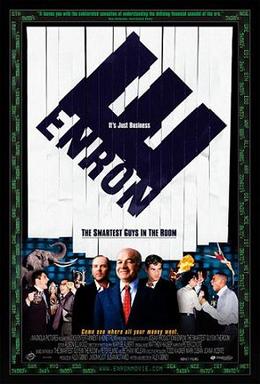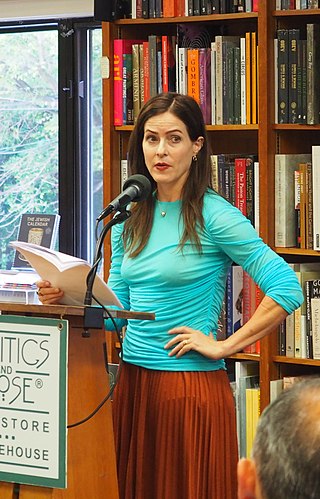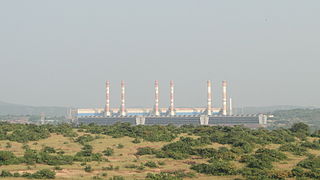
Enron Corporation was an American energy, commodities, and services company based in Houston, Texas. It was founded by Kenneth Lay in 1985 as a merger between Lay's Houston Natural Gas and InterNorth, both relatively small regional companies. Before its bankruptcy on December 2, 2001, Enron employed approximately 20,600 staff and was a major electricity, natural gas, communications, and pulp and paper company, with claimed revenues of nearly $101 billion during 2000. Fortune named Enron "America's Most Innovative Company" for six consecutive years.
Andrew Stuart Fastow is an American convicted felon and former financier who was the chief financial officer of Enron Corporation, an energy trading company based in Houston, Texas, until he was fired shortly before the company declared bankruptcy. Fastow was one of the key figures behind the complex web of off-balance-sheet special purpose entities used to conceal Enron's massive losses in their quarterly balance sheets. By unlawfully maintaining personal stakes in these ostensibly independent ghost-entities, he was able to defraud Enron out of tens of millions of dollars.
Chewco Investments L. P. was a limited partnership associated with the Enron scandal, which resulted in the bankruptcy of Enron. It was named after the Star Wars character Chewbacca, because it was created to hide losses from the Joint Energy Development Investment Limited, known by its acronym "JEDI". Like Chewbacca, the Jedi Knights were prominent characters in Star Wars.
John Clifford "Cliff" Baxter was an Enron Corporation executive who resigned in May 2001 before committing suicide the following year. Prior to his death he had agreed to testify before Congress in the Enron scandal.

Jeffrey Keith Skilling is an American businessman who in 2006 was convicted of federal felony charges relating the Enron scandal. Skilling, who was CEO of Enron during the company's collapse, was eventually sentenced to 24 years in prison, of which he served 12 after multiple appeals.
Sherron Watkins is an American former Vice President of Corporate Development at the Enron Corporation. Watkins was called to testify before committees of the U.S. House of Representatives and Senate at the beginning of 2002, primarily about her warnings to Enron's then-CEO Kenneth Lay about accounting irregularities in the financial statements.

Azurix Corp. is a water services company, headquartered in Houston, Texas. The company owned and operated facilities in North America, Europe, and South America. In 2007, Azurix was awarded a $165 million claim against the government of Argentina by an international arbitral tribunal; the company is currently involved in a dispute over Argentina's refusal to pay the claim.

Enron: The Smartest Guys in the Room is a 2005 American documentary film based on the best-selling 2003 book of the same name by Fortune reporters Bethany McLean and Peter Elkind, who are credited as writers of the film alongside the director, Alex Gibney. It examines the 2001 collapse of the Enron Corporation, which resulted in criminal trials for several of the company's top executives during the ensuing Enron scandal, and contains a section about the involvement of Enron traders in the 2000-01 California electricity crisis. Archival footage is used alongside new interviews with McLean and Elkind, several former Enron executives and employees, stock analysts, reporters, and former Governor of California Gray Davis.

Bethany Lee McLean is an American journalist and contributing editor for Vanity Fair magazine. She is known for her writing on the Enron scandal and the 2008 financial crisis. Previous assignments include editor-at-large, columnist for Fortune, and a contributor to Slate.
Adrian Zackheim is the founder and publisher of the business book imprint Portfolio and the conservative political imprint Sentinel, both divisions of Penguin Books.

Philip Alexander Gibney is an American documentary film director and producer. In 2010, Esquire magazine said Gibney "is becoming the most important documentarian of our time."
Lou Lung Pai is a Chinese-American businessman and former Enron executive. He was CEO of Enron subsidiaries Enron Energy Services and Enron Xcelerator, a venture capital division. He left Enron with over $250 million. Pai was the second-largest land owner in Colorado after he purchased the 77,500-acre (314 km2) Taylor Ranch for $23 million in 1999, though he sold the property in June 2004 for $60 million.
Rebecca P. Mark-Jusbasche, known during her international business career as Rebecca Mark, is the former head of Enron International, a subsidiary of Enron. She was also CEO of Azurix Corp., a publicly traded water services company originally developed by Enron International. Mark was promoted to Vice Chairman of Enron in 1998 and was a member of its board of directors. She resigned from Enron in August 2000.
William "Bill" Shannon Lerach is an American disbarred lawyer who specialized in private Securities Class Action lawsuits. The $7.12 billion he obtained as the lead plaintiff's attorney in the case against Enron is currently the largest sum ever recovered in a group of securities class-action lawsuits in U.S. history. In 2007 he pleaded guilty to obstruction of justice and was sentenced to two years imprisonment. In 2009 he was disbarred from practicing law in California. As part of the settlement, Lerach would not cooperate as a witness and his law firm would be protected from any further prosecution. Over the course of his career, it has been estimated that Lerach recovered upward of $45 billion on behalf of defrauded investors. Lerach has stated that about 85% of his cases were brought due to insider trading, which he described as “footprints in the snow.”

The Enron scandal was an accounting scandal involving Enron Corporation, an American energy company based in Houston, Texas. When news of widespread fraud within the company became public in October 2001, the company declared bankruptcy and its accounting firm, Arthur Andersen – then one of the five largest audit and accountancy partnerships in the world – was effectively dissolved. In addition to being the largest bankruptcy reorganization in U.S. history at that time, Enron was cited as the biggest audit failure.

Dabhol Power Station is located near Anjanwel village in Ratnagiri district in Maharashtra, India, about 160 kilometres (99 mi) south of Mumbai. The power station was built by the Dabhol Power Company (DPC), which was a joint venture of Enron International, General Electric, Bechtel and Maharashtra Power Development Corporation. At the start of its construction in 1992, the Dabhol power station project was, at $3 billion, the biggest foreign investment in India. The plant was mired in controversies of corruption and malpractices involving Enron and people at the highest political levels of the Indian and the United States governments.

The Big Short: Inside the Doomsday Machine is a nonfiction book by Michael Lewis about the build-up of the United States housing bubble during the 2000s. It was released on March 15, 2010, by W. W. Norton & Company. It spent 28 weeks on The New York Times best-seller list, and was the basis for the 2015 film of the same name.
Jason Kliot is an American independent film producer based in New York. Kliot emerged with the American indie wave of the 1990s, producing alongside his wife and business partner Joana Vicente. In 1995 Kliot and Vicente associate produced Todd Solondz's feature debut, Welcome to the Dollhouse, which won the Sundance Grand Jury Prize. Kliot and Vicente have since worked with directors such as Steven Soderbergh, Brian De Palma, Hal Hartley, Nicole Holofcener, Jim Jarmusch, and Alex Gibney.

Barbarians at the Gate: The Fall of RJR Nabisco is a 1989 book about the leveraged buyout (LBO) of RJR Nabisco, written by investigative journalists Bryan Burrough and John Helyar. The book is based upon a series of articles written by the authors for The Wall Street Journal. The book was made into a 1993 made-for-TV movie by HBO, also called Barbarians at the Gate. The book centers on F. Ross Johnson, the CEO of RJR Nabisco, who planned to buy out the rest of the Nabisco shareholders.
The 58th Writers Guild of America Awards, given on February 4, 2006, honored the best film and television writers of 2005.









